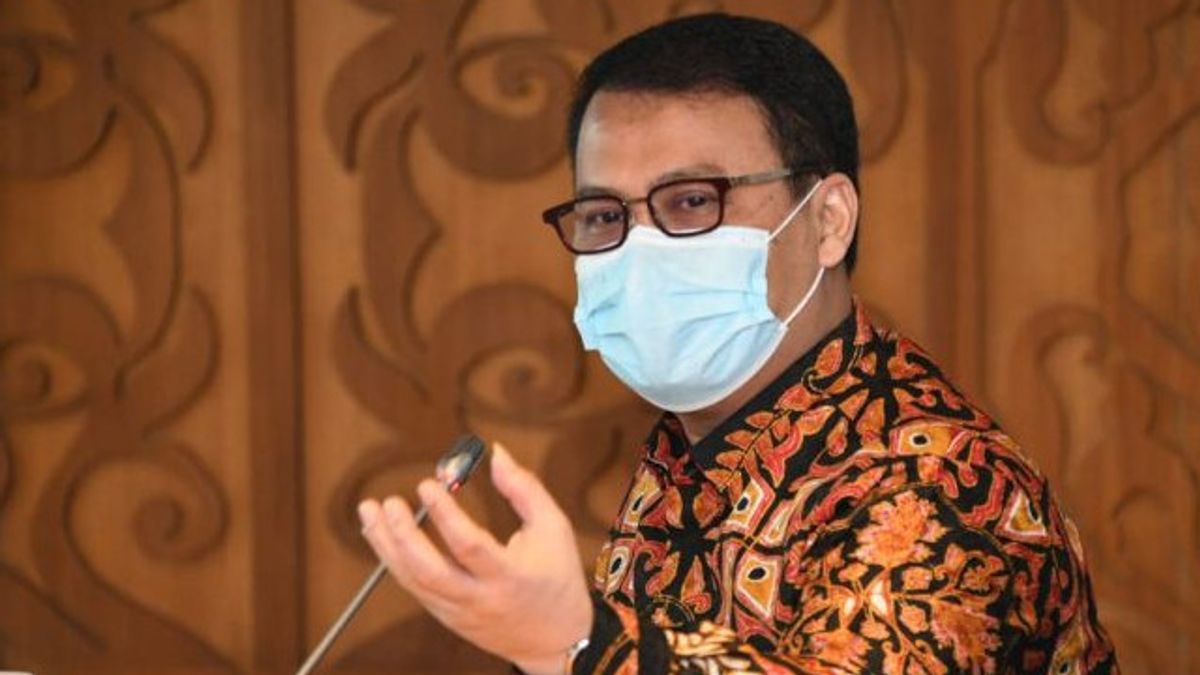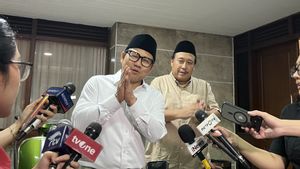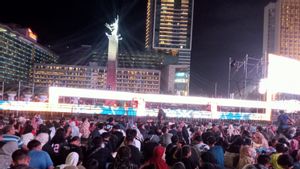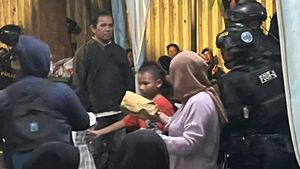JAKARTA - Deputy Chairperson of the MPR, Ahmad Basarah, is surprised that there are still parties arguing about the birthday of Pancasila. Even though it is clear that the government has set June 1 as the Commemoration of the Birthday of Pancasila through Presidential Decree Number 24 of 2016.
Basarah said this when he was a speaker at the Seminar on the Commemoration of the Birthday of Pancasila with the theme "Implementation of Pancasila to Strengthen Nationalism and State Defense in the Higher Education Academic Community", at the Sentul Defense University Campus, Bogor, West Java, Wednesday 29 June. completes the state document of Presidential Decree No. 18 of 2008 which stipulates August 18, 1945 as Constitution Day. Basarah explained that Pancasila had functioned as the basis of state philosophy, state ideology, and became the source of all sources of state law. and unifying the pluralistic Indonesian nation. "However, ironically there is still debate in our society about the exact date of the birth of Pancasila," he said in a press release quoted from Antara. This is understandable because long before President Jokowi set the birthday of Pancasila, he said, Pancasila is called the birth of the al August 18 1945. Even though there was already a Presidential Decree No. 18 of 2008 which stipulates August 18, 1945 as Constitution Day. According to Basarah, the argument that Pancasila was set for August 18, 1945 was because at that time PPKI stipulated the 1945 Constitution and in the Preamble to the 1945 Constitution there were already preambles the Pancasila precepts. Even though the approval of the formulation of the Pancasila precepts was not a sudden agreement of the nation's founders, but was a long process before since Bung Karno's 1 June 1945 speech before the BPUPK Session, had experienced developments in the formulation of the Jakarta Charter on 22 June 1945 by the Committee of Nine. which was chaired by Bung Karno and then reached a final agreement on August 18, 1945 by the Preparatory Committee for Indonesian Independence (PPKI) chaired by Bung Karno. For example, the question will arise, how do we know that the five precepts in the Preamble to the 1945 Constitution are called Pancasila? Because there is not a single word Pancasila in the preamble of the Constitution, we see in the first, second, third and fourth paragraphs there is no word Pancasila," explained Basarah.
Next, "How can we understand the philosophy of the Pancasila precepts according to the intentions of the founders of Pancasila and the founding fathers of the nation? If we refer to the birth of Pancasila only on August 18, 1945, the risk is that the Indonesian people will understand the values of Pancasila according to their individual tastes. No there is a guide in understanding the nation's philosophy contained in Pancasila," he said. In fact, he continued, the five precepts of Pancasila are not a dead sentence or a dogmatic ideology like communism. Likewise, if it is interpreted as an open ideology, but it is not free to be interpreted at will. Pancasila is an open and dynamic ideology, where values can keep up with the times by each generation of the nation, but the meaning of its basic philosophy must still be guided by the intentions of the founders of Pancasila and the founding fathers of the nation. the precepts of Pancasila allow Indonesian citizens to become atheists, he explained. Meanwhile, there are other interpretations which state that the only religion that conforms to the "Belief in One Supreme God" in the first principle of Pancasila is Islam. Another free opinion states that the spirit of Pancasila is the Shari'ah NKRI, he said. "To answer such debates, a historical and hermeneutical approach is very important," said Basarah.
For him, understanding the history of Pancasila which comes from the intentions of the founders of the nation is the method and guideline for the Indonesian people in understanding the philosophical meaning contained in each of the Pancasila precepts. " he said. Basarah emphasized that to become an ideology that lives in the midst of his nation, Pancasila has at least 3 conditions. The first condition is that the rationality of Pancasila must be believed to be true. "The Indonesian people all believe that the values of Pancasila are a set of truth values. Therefore, these truth values are believed to be able to lead the Indonesian people and nation to the goal of the state," explained Basarah. Second, after it is believed, then it must be lived and understood in order to achieve it, of course, one must study Pancasila in its entirety according to what was formulated and agreed upon by the nation's founders. and internalized, then Pancasila is then practiced in the life of the nation, society and state, so that then Pancasila will become an ideology that lives and works in the midst of its own people," said the chairman of the PDI-P DPP.
The English, Chinese, Japanese, Arabic, and French versions are automatically generated by the AI. So there may still be inaccuracies in translating, please always see Indonesian as our main language. (system supported by DigitalSiber.id)








